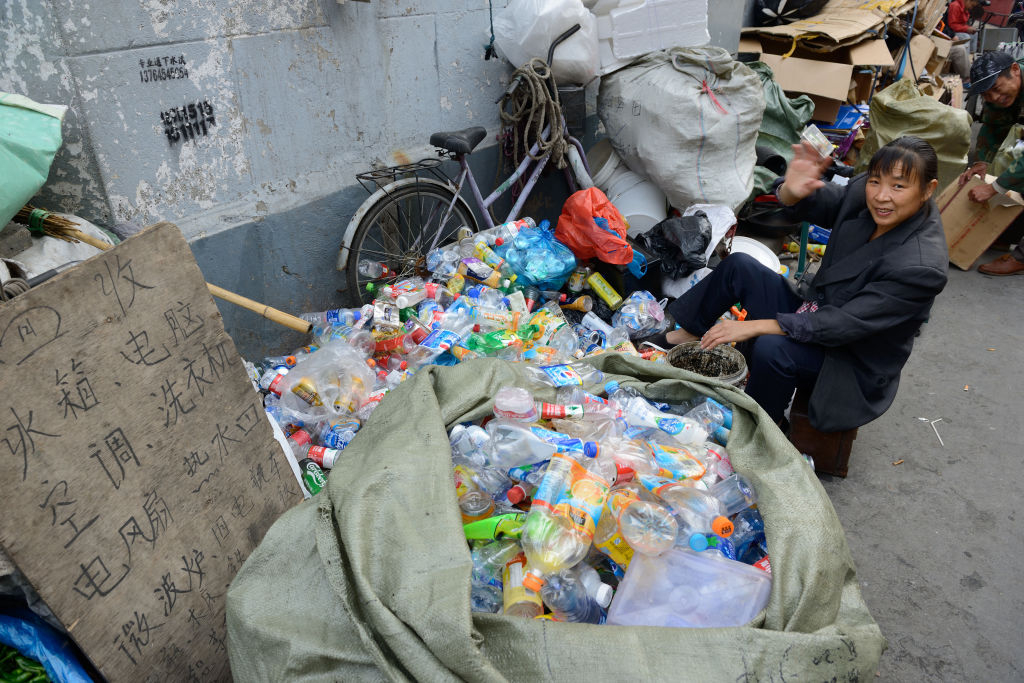
Opinion
18:42, 26-Apr-2019
As urbanization increases, cities face issues of waste management
Lyu Mengxing

Editor's note: Lyu Mengxing is an assistant professor at China University of Political Science and Law. The article reflects the author's view, not necessarily those of CGTN.
In the report delivered at the 19th National Congress of the Communist Party of China on October 18, 2017, Chinese President Xi Jinping pointed out that “what we now face is the contradiction between unbalanced and inadequate development and the people's ever-growing needs for a better life.”
The evolution of China's principal contradiction echoes the historical shift in China during the past decades. Since economic reform in 1978, China has achieved remarkable progress in economic growth, industrialization and urbanization. Today China has become the world's second largest economy.
Although the Chinese economy has taken a great leap forward, there remains many challenges in terms of achieving sustainable development in China. China's rapid economic growth comes at the expense of extensive resource consumption and severe environmental degradation, the negative effects of this growth model have become more evident in recent years.
In this context, the need to live a better and decent life is increasing rapidly, and the pursuit of a healthy livable city has become a priority issue among Chinese policymakers.

An aerial view of the venue for the 2019 Beijing International Horticultural Expo that opens at April 29, 2019. /VCG Photo
An aerial view of the venue for the 2019 Beijing International Horticultural Expo that opens at April 29, 2019. /VCG Photo
Themed “Live Green, Live Better,” the International Horticultural Exhibition 2019 (Beijing Expo 2019) will hold its grand opening ceremony in Beijing's Yanqing District on April 29. In the following six months, the Beijing Expo 2019 is expected to attract exhibitors around the world to display high-level gardening products and also to exchange their innovative ideas as to how to make our life green and better.
However, a livable city does not simply mean blossoming flowers, green trees, gardens, recreational parks, and green buildings. Today, household waste has become a major threat to urban environmental quality and sustainable development and also poses serious health risks to local residents.
It is not surprising that today's trash crisis frequently happened across the globe, especially for affluent societies, where people are inclined to dispose of more trash. The trash crisis warns us of the threat of waste to the environment, health and a city's image, and the urgency of waste management in urban areas.
Statistics from the United Nations predict that by 2047, 70 percent of the world's population will be living in urban areas, which without a doubt makes this problem even worse.

A local resident collects plastic bottles in a traditional urban alley-community in Shanghai, October 14, 2016. /VCG Photo
A local resident collects plastic bottles in a traditional urban alley-community in Shanghai, October 14, 2016. /VCG Photo
As a daunting issue facing the world, waste management is critical to the long-term functioning of the healthy and livable urban spaces. Confronting serious urban pollution, waste separation and management has been a top policy agenda in many cities and nations.
One example of such efforts is the strict waste separation system established in Amsterdam, mandating that different types of waste be disposed in corresponding bins, such as, glass, paper, plastic packaging and drinks cartons, shoe textiles, and "residual waste." Moreover, Amsterdam also restricts trash the days and times that trash can be taken out. Any violation of these rules results in a fine, usually more than 100 euros.
Recently, important progress of China's waste management was made in Shanghai. On January 31, 2019, the annual session of Shanghai Municipal People's Congress passed the first regulation on household waste management, which will take effect from July 1 this year. The new regulation covers various issues throughout the whole process of waste management, including sorting, disposal, transportation, treatment, recycling and legal liability. It is worth noting that this new regulation introduces penalties on individuals, that residents will be fined 50 to 200 yuan if they fail to fulfill their obligations on trash sorting.
As the process of urbanization in China is deepening, trash management is becoming a key issue of urban development, particularly in the pursuit of a green city and a better life. The enactment of this new regulation not only represents Shanghai's efforts in waste management but also signals a part of the nationwide efforts in tackling China's growing amount of waste.
(If you want to contribute and have specific expertise, please contact us at opinions@cgtn.com)

SITEMAP
Copyright © 2018 CGTN. Beijing ICP prepared NO.16065310-3
Copyright © 2018 CGTN. Beijing ICP prepared NO.16065310-3